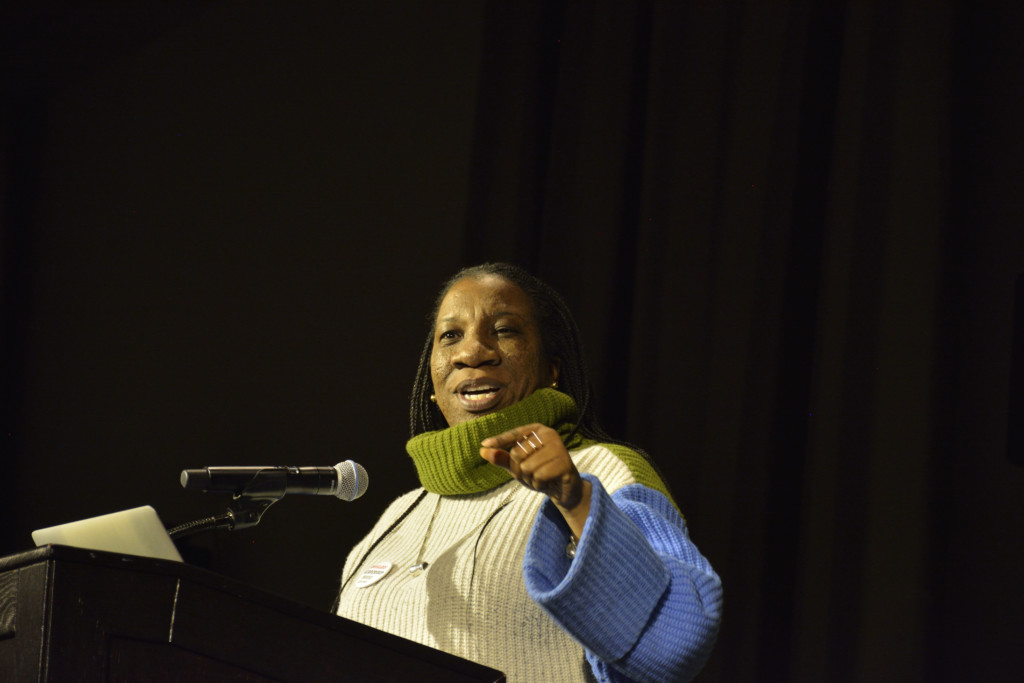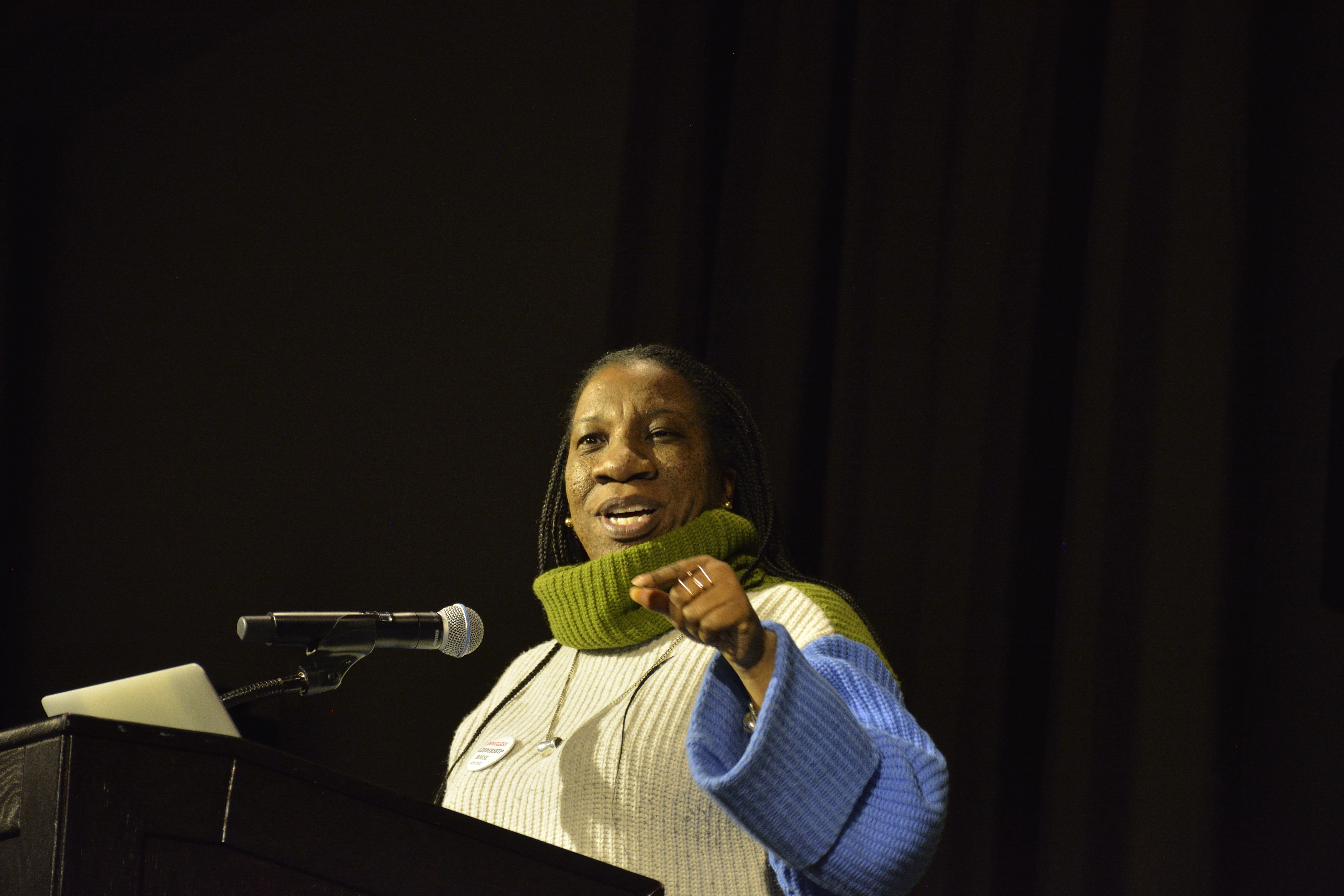Tarana Burke, founder of the #MeToo movement, told students this past Monday that their voices are powerful together in the fight against sexual violence in their community.
“You are worthy of and deserve protection and safety,” Burke said to the audience in the packed Feldman Ballroom. “When you enroll in a school, one of the top priorities of that school should be to provide that protection and safety.”
Burke said she felt disheartened after learning about the University’s handling of sexual misconduct allegations against Professor T. Florian Jaeger. She thought the framing of the independent report released in January created distance between care providers and those seeking care..
“I was scrolling through the school’s mission statement and it said it was to learn, discover, heal, create, and make the world a better place,” Burke said. “It’s beautiful, right? My question would be to the administration is, ‘How will the students do that without your guidance as an example and more importantly, how will you do it as a school without fixing your moral compass?’”
Burke said she thought the 12 points released by the administration are a good start, but she affirmed that the solution should be centered around the students. She called for a cultural shift in which students come together to create solutions that would set a new standard for sexual violence on campuses.
“What happens when this thing is handled the way it is, is it tries to diminish the power that you have,” Burke said. “It feeds you nonsense to distract you from the bottom line, which is you do have power. And what you have is collective power, which is dangerous.”
Collective power is why the #MeToo movement has kept itself in the conversation. Hashtags come and go, but Burke believed this is just the beginning.
#MeToo was founded in 2006. It recently went viral when actress Alyssa Milano tweeted it out and called for women to make public their experiences with sexual misconduct.
“What we are is a global community of survivors and allies who are committed to healing as individuals and as a community, and committed to doing the work of interrupting sexual violence wherever it lives,” Burke said. “Ultimately, our goal is about creating spaces for cultivating joy as a form of personal healing.”
She encouraged survivors to lean into their joy rather than to live in their trauma. To allies, Burke said to simply listen and trust.
For the future of the organization, Burke plans to have a website with one-on-one individual resources and offline resources like healing spaces and survivor leadership training.
Her speech was followed by a quick Q and A session in which Burke discussed how to include more men into the movement, the media’s exploitation of survivors, efforts to reach older generations, and alternative demonstration approaches.
“Sometimes it’s not having a march and it’s not having a rally,” Burke said. “They are used to that. I’m encouraging you to think outside the box.”
Uncommon alliances coming together on sexual violence is what Burke said will cause a shift in culture
“They owe you accountability at the very least and they owe you safety,” Burke said. “Don’t let this happen on your watch. You can take your power back.”
Upon the recent happenings on campus, students were moved by Burke’s words.
“She’s entirely inspirational,” said Warner School of Education student Devin Bonner. “I think it’s extremely relevant that she’s here today and I think it’s exactly what the community needs.”
Burke’s call to come together empowered others.
“To me, Tarana Burke coming here really confirmed my notion that this is an opportunity for students to change the culture surrounding sexual violence at UR,” said junior Gabrielle Henry. “She really bolstered my confidence in our potential as students to make changes.”
Some students believed Burke reminded them of their rights.
“I felt that she addressed something that we needed to be reminded of,” sophomore Omo Matloga said. “It’s not demanding something that is not doable. We deserve to feel safe at this school. We deserve to feel respected and it’s up to the administration to provide that. Even with moving forward, we need to be at the center of the conversation. If that doesn’t happen, then we need to light it up in her words.”


